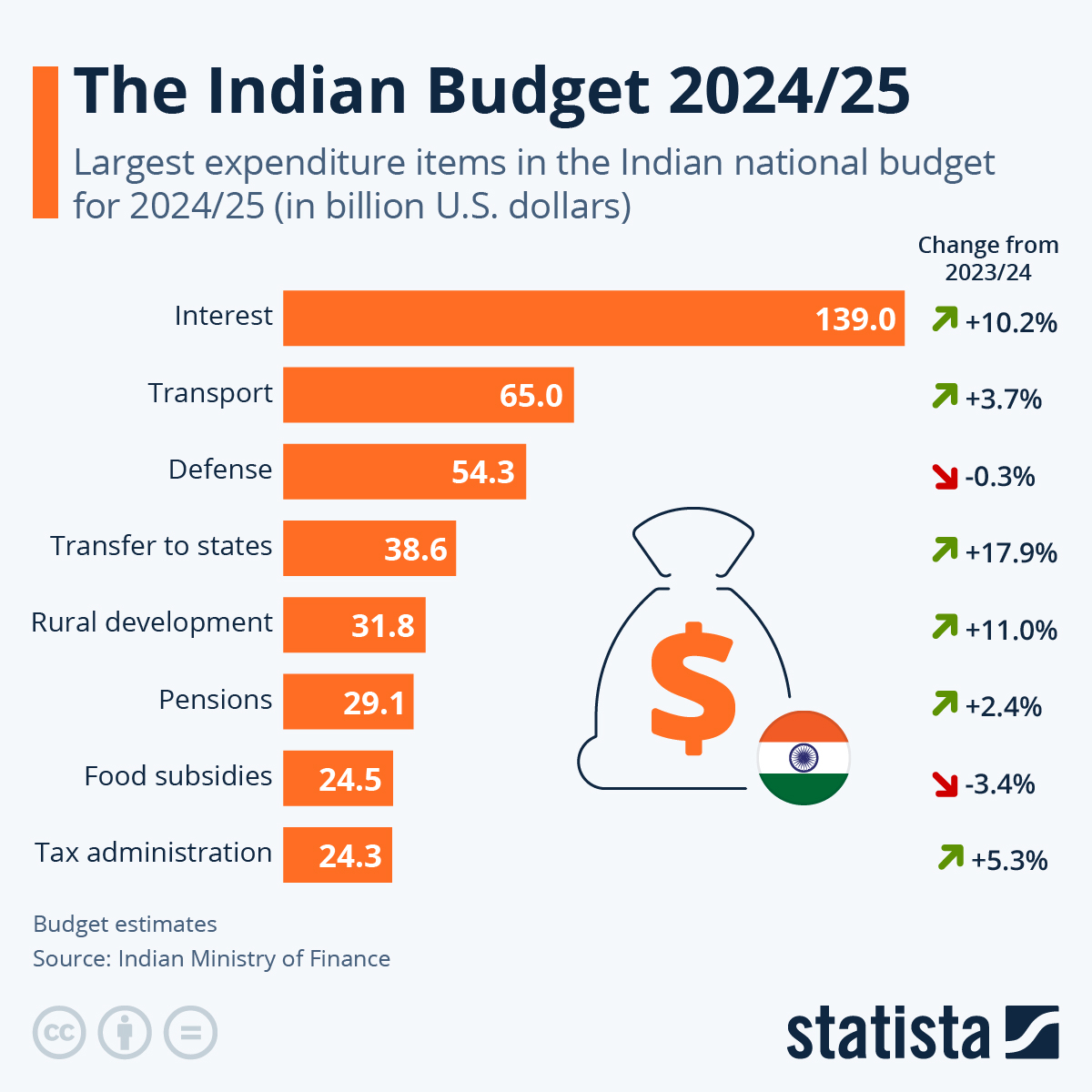The first Indian national budget in Narendra Modi's new term was released on Tuesday, earmarking more funds for rural development and allocating more money to states - in particular to Andhra Pradesh, from where the BJP's returning ally Telugu Desam Party hails. The prime minister's party lost its absolute majority of seats in India's parliament in the past election ending in June and now depends on its allies like the TDP and Bihar's Janata Dal (United) more.
Through new schemes focusing on job starters and manufacturing, the budget is looking to invest 2 lakh crore rupees ($24 billion) in job creation initiatives over the coming five years. Food subsidies meanwhile continue to be rolled back and defense spending will remain almost stable. In 2021, the government had already announced a major modernization initiative for the country’s rail transport infrastructure, which is now being funded together with provisions for roads and airports, causing this budget item to grow - if not as much as in previous years.
Overall, interest payments remain the biggest budget item and continue to rise, if not at as fast a clip as in the pandemic. Despite the budget increasing once more to 48 lakh crore rupees ($756 billion), the Indian government will decrease its deficit this year. This is due to a generous dividend payout by the central bank made possible by higher interest rates on securities and higher sales of foreign exchange, according to CNBC.





















